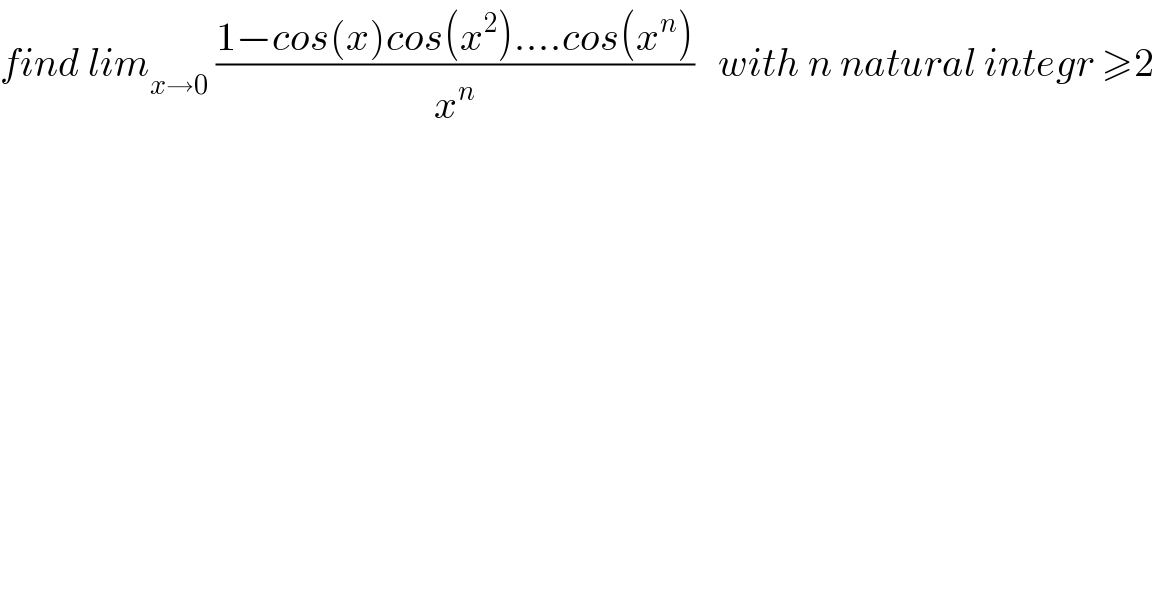
Question and Answers Forum
Previous in Relation and Functions Next in Relation and Functions
Question Number 58753 by maxmathsup by imad last updated on 29/Apr/19

Commented by tanmay last updated on 30/Apr/19

Answered by Smail last updated on 30/Apr/19
![Undefined let f(x)=cos(x)cos(x^2 )cos(x^3 )...cos(x^n ) f(x)∼_0 (Σ_(i=0) ^([(n/2)]) (x^(2i) /((2i)!)))(Σ_(i=0) ^([(n/4)]) (x^(4i) /((2i)!)))...Σ_(i=0) ^1 (x^(2ni) /((2i)!)) =1+a_1 x^2 +a_2 x^4 +a_3 x^6 +...+a_([n/2]) x^n +....+a_n x^(2n) ((1−f(x))/x^n )=−(a_1 /x^(n−2) )−(a_2 /x^(n−4) )−....−a_([n/2[) −... lim_(x→0) ((1−f(x))/x^n )=lim_(x→0) (−(a_1 /x^(n−2) )−(a_2 /x^(n−4) )−...) =+_− ∞=Undefined](Q58830.png)
Commented by maxmathsup by imad last updated on 01/May/19

